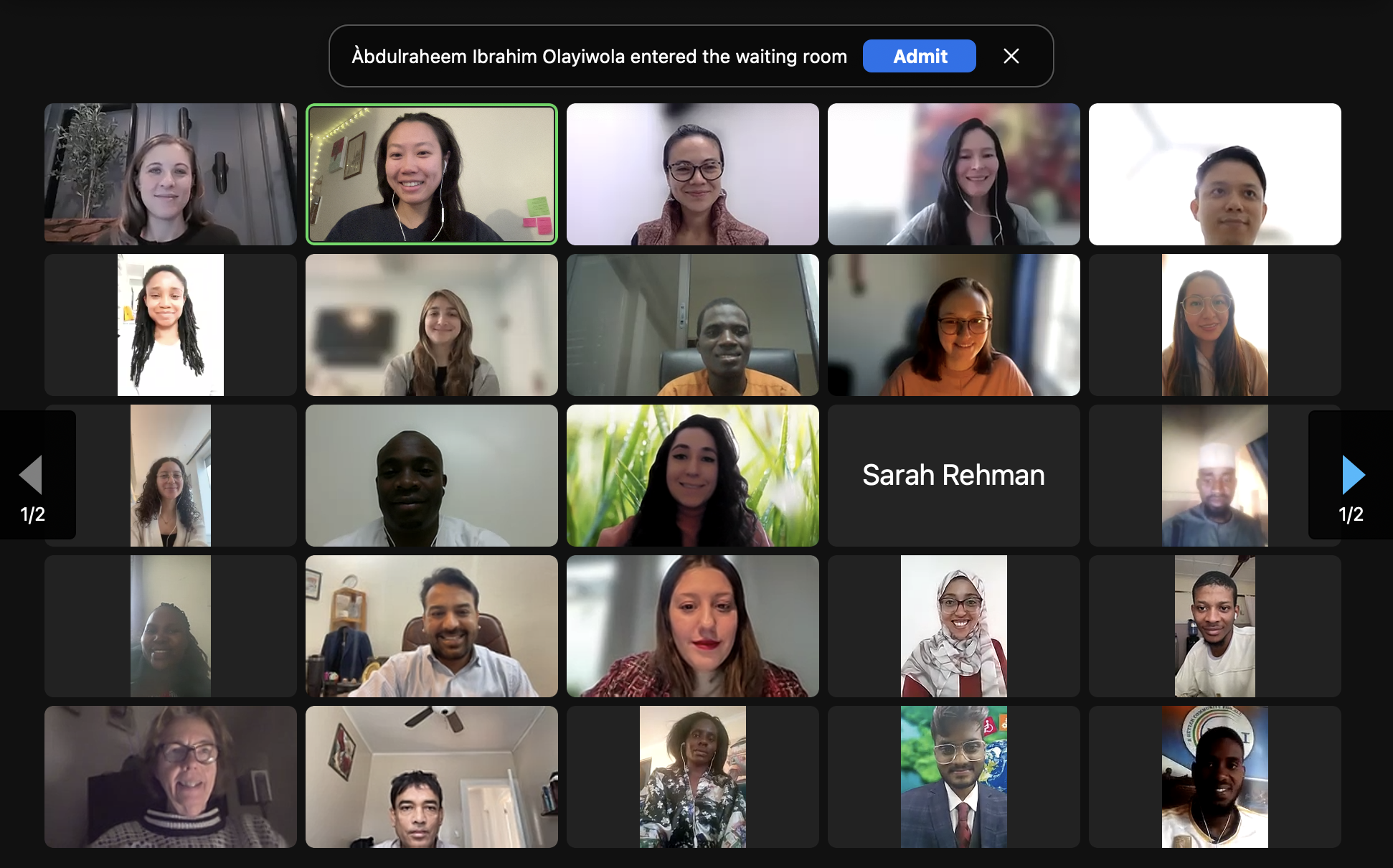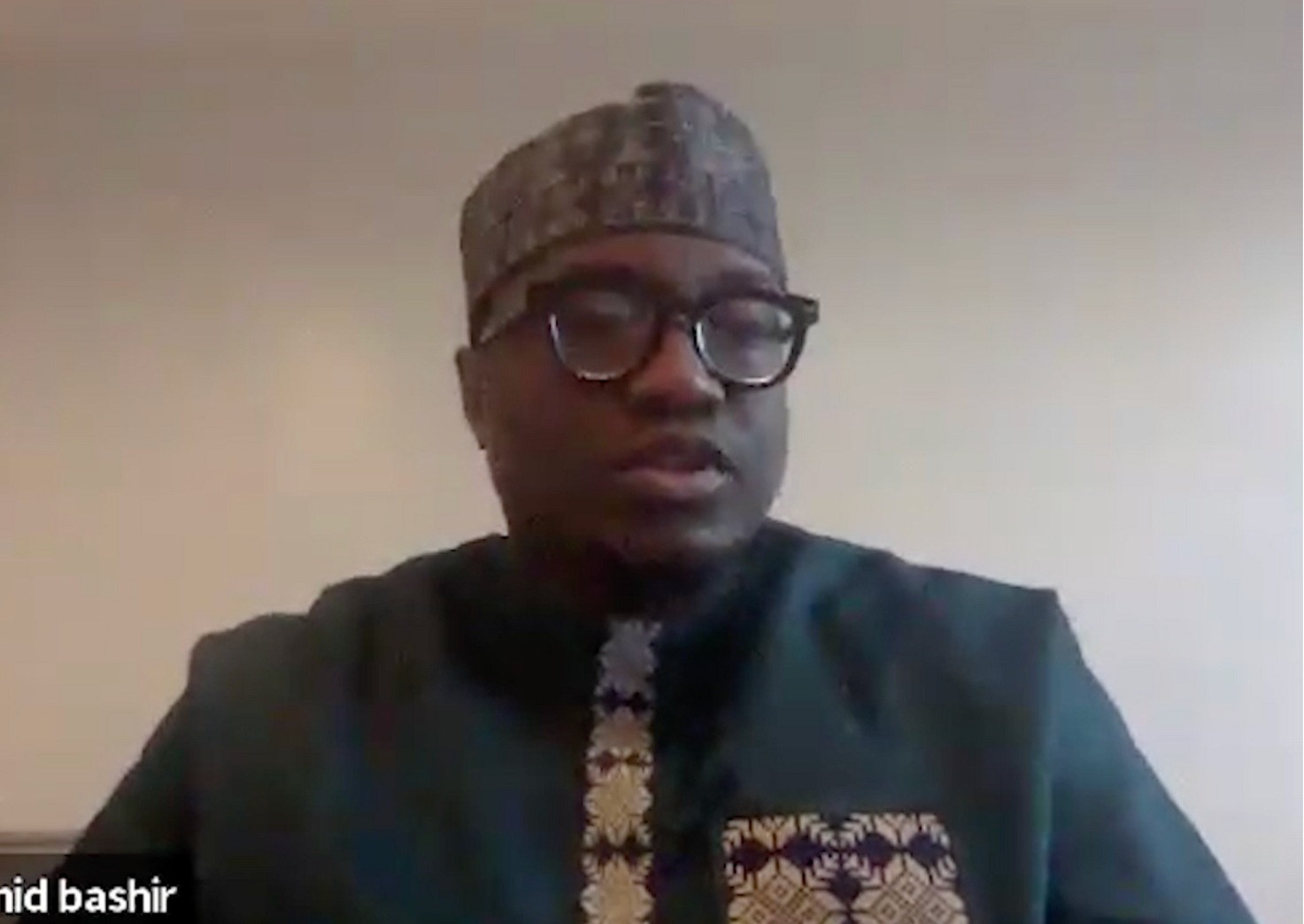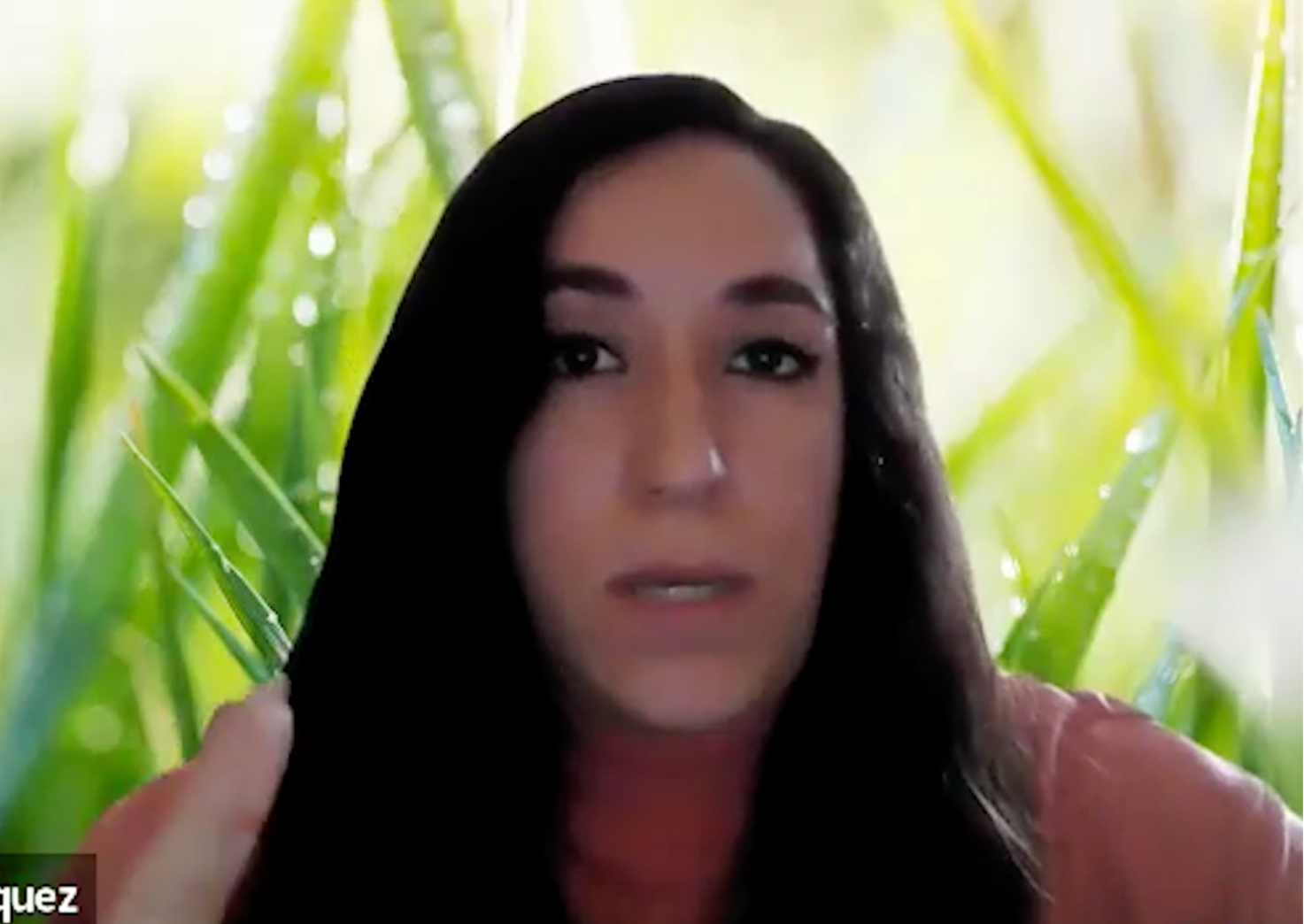From Crisis to Cohesion: Youth-Led Peacebuilding in a Changing Climate
Webinar | November 2024
On Monday, November 18, the Peacemakers Network, with partners United States Institute of Peace (USIP) and the UNCCD Youth Caucus, hosted an online COP16 Side Event, “From Crisis to Cohesion: Youth-Led Peacebuilding in a Changing Climate,” where 128 participates attended.
During the welcoming remarks, the hosts were introduced, including Ruby Haji Naif, the Focal Point for Peace and Security at the UNCCD Youth Caucus; Paula Porras Reyes, the Acting Director on Youth, Peace, and Security at USIP; and Jessica Roland, the Senior Specialist for Inclusive Peace at the Peacemakers Network. The meeting began by welcoming the participants, providing an overview of the agenda and stating that the overall goal of the meeting, which was to bring together young peacebuilders from around the world to highlight their role in addressing climate-induced conflicts and emergencies.
To facilitate the discussion, participants took part in a live digital poll that addressed the questions, “What climate issues are causing environmental stress or potential conflict in your communities?” and “How does this impact young people?” Following a review of the diverse contributions that highlighted the intersectional effects of climate issues on youth from around the world, the conversation shifted to a panel discussion featuring youth peacebuilders working in areas of climate, peace and security.

Group photo of participants at the COP 16 Online side event over Zoom. 2024.
The panel consisted of moderator Ruby Haji Naif, Focal Point for Peace and Security, UNCCD Youth Caucus and with speakers: Imam Bashir Kishk Yandu, Fellow of Faith for Our Planet based in Ghana; Dalia Fernanda Marquez, Co-Chair of PUNMA, based in Venezuela; and Amira Soror Labiod, Project Manager of Second Change Initiative, based in Algeria.
Participant responses to Poll 1
What climate issues are creating environmental stress or potential conflict in your communities?
Water scarcity
Lack of accountability from global north and putting that blame on global south
In Somalia, climate change effects flooding and droughts leading to lack of water, food, and educaiton
Illegal mining
Pollution
Deforestation
The absence of sufficient organic matter in the soil, leads to desertification and the release of carbon into the atmosphere.
Drought and flooding
Lack of blue and green spaces and plastic pollution
Oil spillage in the Niger Delta as a result of MNC processes
Flooding
Migration and refugee issues
Not having good follow-up rates for the commitments
Soil degradation
The speakers were asked the earlier poll questions as well as the question, “How are young peacebuilders in your community contributing to mitigating the impact of the climate issue?” Imam Bashi Kishk Yandu began the conversation by emphasizing that the major climate issue in Ghana today is illegal mining, which has severe effects on farming land and multidimensional impacts on youth. He highlighted the importance of peacebuilders collaborating with faith organizations to work directly with communities, support farmers, and raise awareness about environmental risks, emphasizing the impact of local and national actions “we as young peacebuilders are putting in…to see how best we can help solve this problem at our level.” This work includes dedicated efforts to keep youth in school and promote sustainability.

Imam Bashir Kishk Yandu, Fellow of Faith for Our Planet. 2024.

Dalia Fernanda Marquez, Co-Chair of PUNMA. 2024.
Dalia Fernanda Marquez then discussed the endless threats young people in Venezuela face due to climate change. She emphasized the importance of young people becoming more active in the climate and security space. Highlighting successful youth-led initaitives, Marquez stressed that
“young people need access to education and training on interdisciplinary topics…promoting activities for resilience, but at the same time, capacity-building”
as well as requiring meaningful inclusion in decision-making processes without the risk of discrimination or harrassment. Marquez closed by affirming the importance of intergenerational dialogue across communities to share knowledge and foster cohesion, particularly in areas related to climate adaptation, “strengthening the cultural and historical connection between us and the communities.”
Participant responses to Poll 2
How do these climate issues affect young people?
Climate anxiety
Low employment due to decreasing jobs
For some communities that depend on water for sustainability, drought affects the economic growth of such community, driving some youths to violence and conflict engagements
Drought and floods cause migration of young people which disrupts their learning
Disturbing the ecosystem
Displacement
Highly impacts conflict
Prevents young people from investing in agricultural practices
Human rights and land defenders are usually endangered in conflict-affected regions
Health issues and educational problems
Lack of blue and green spaces and plastic pollution
Due to the marginalized nature, young people are unemployed, health systems are down, and lack of political will
Misusing and exploitation of climate funding
Rising number of climate refugees are youth
Migration and refugee issues
Decreased education
More funding and resources going for climate therefore leaving less support for other areas concerned with youth development and resilience

Amira Soror Labiod, Project Manager of Second Chance Initiative. 2024.
Finally, Amira Soror Labiod focused on the issues of desertification and water scarcity in Algeria, emphasizing their intersectional impacts on young people. She highlighted the vital role that youth are playing in responding to these challenges across all levels, encouraging representation and inclusion because every country, every region, has a certain demography that needs to be embraced and encouraged.” Labiod presented examples including young people’s partnerships with local organizations, their efforts to examples including young people’s partnerships with local organizations, their efforts to conduct capacity-building workshops “to equip themselves and their peers with enough knowledge and skills to try and promote the sustainable development and climate resilience that we should all be equipped with,” and their contributions to key policy briefs through the Youth Council. She stressed that young people are already actively engaged in the climate, peace and security space, and that they deserve enhanced inclusion and sustainable support.
The discussion then transitioned into breakout groups, allowing participants to address the challenges and needs of young people working in the climate, peace and security space. Based on the group discussions, below are further challenges and needs raised in advancing the work of young peacebuilders in the climate, peace and security space.
Missed the event and want the full discussion? Click here to view the recording.
Follow the Network on social
